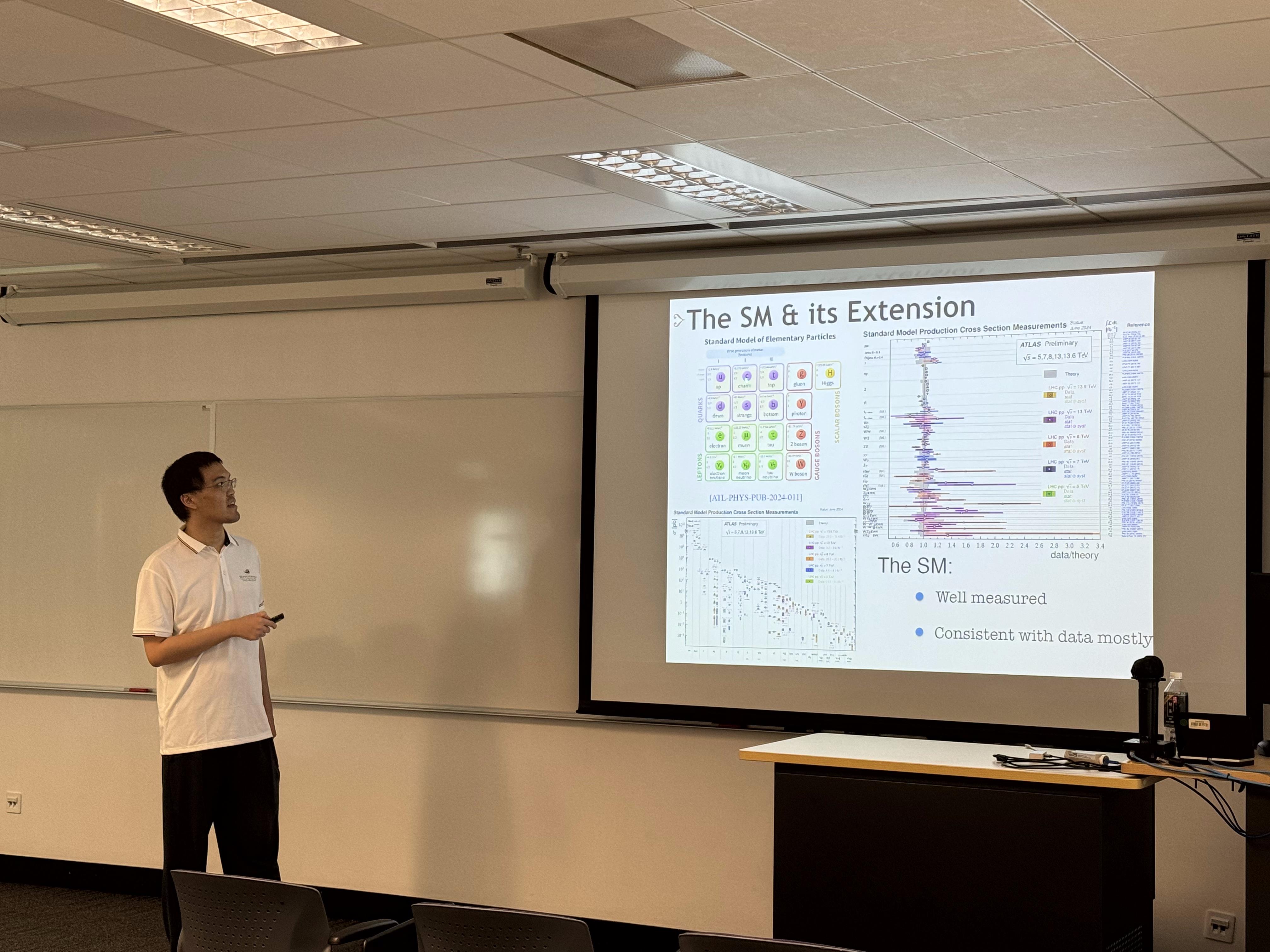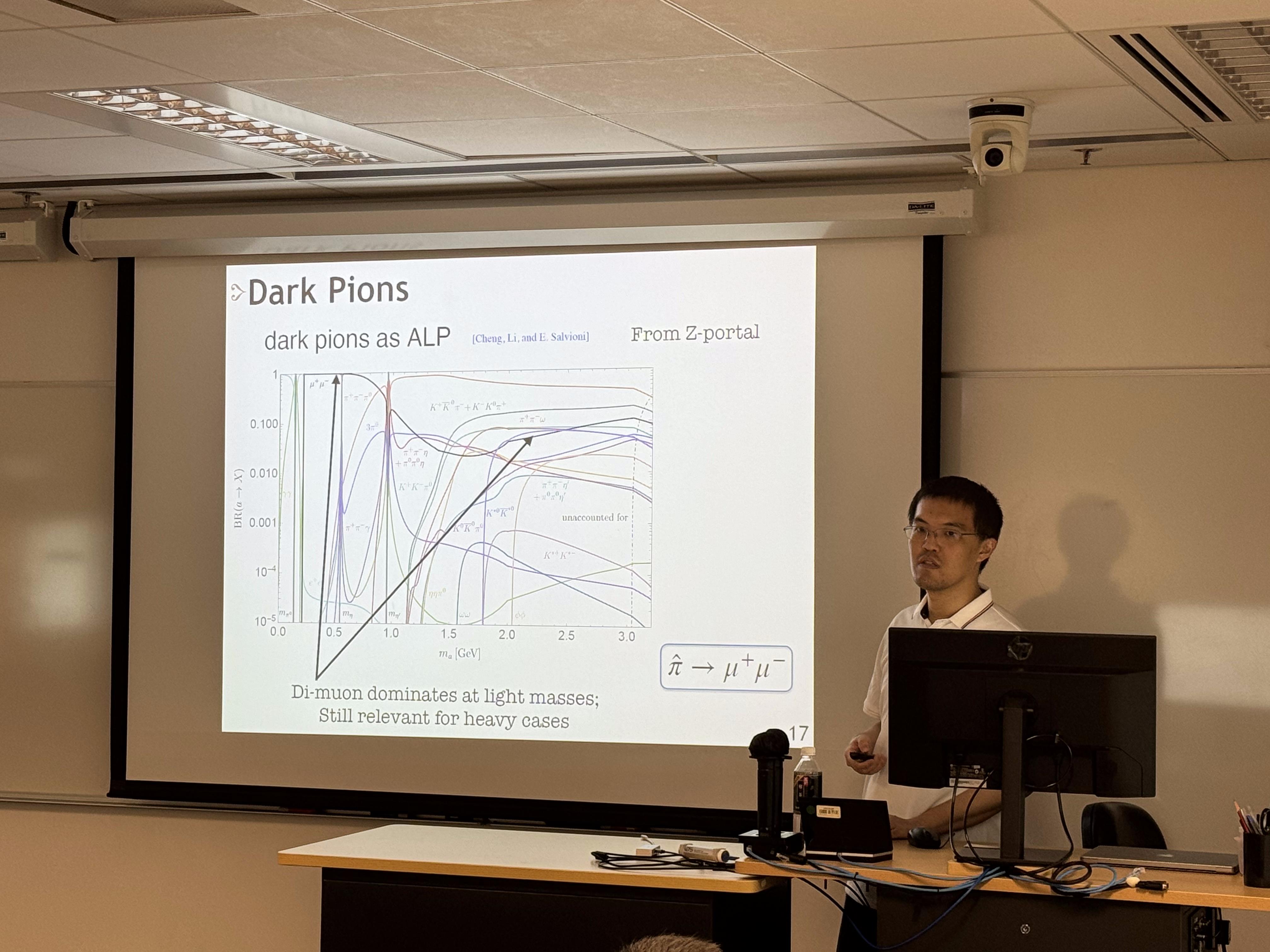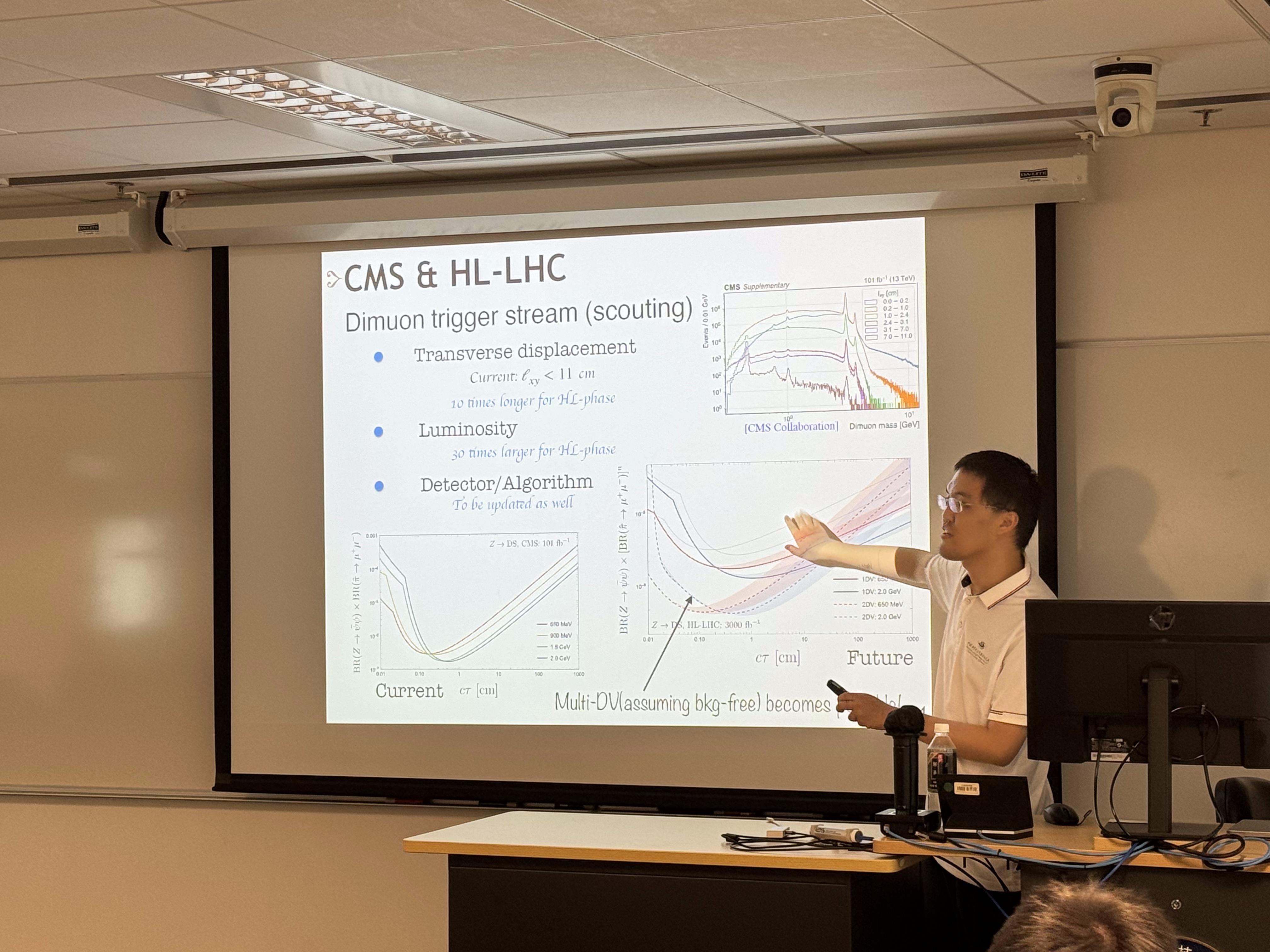Electroweak Portal Dark Shower
Abstract
We investigate the phenomenology of a dark QCD sector interacting with the Standard Model (SM) via the electroweak (EW) portal. This interaction allows SM bosons such as Z and h to decay into dark fermions and enables dark mesons to become long-lived particles (LLPs). We focus on dark shower events initiated by various bosonic mediators at the Large Hadron Collider (LHC) and other experimental facilities. The most prominent signal is the displaced decay of GeV-scale dark pions with a lifetime not much longer than the meter scale. Current limits on dark shower signals at LHC detectors are recast from public data in a model-independent manner. Future limits in the high-luminosity phase and proposed auxiliary detectors are also projected. Additionally, we study the flavor-changing neutral current (FCNC) B and K decays, obtaining both current and projected constraints. These constraints are combined according to two benchmarks of the EW portal: the heavy doublet fermion mediation and the Z′ model with mass mixing. Phenomenological parameters, such as the dark pion decay length, dark shower rate, and FCNC branching ratio, are determined by a few model parameters. The combined limits indicate that current and future LHC runs, alongside other experimental efforts, have significant potential to probe previously unconstrained regions of parameter space. The high sensitivity underscores the importance of ongoing and upcoming searches for LLPs in dark QCD sectors, highlighting several complementary probes of the EW portal dark sector.
About the Speaker
Dr. JIANG Xuhui got his bachelor's degree at Nanjing University in 2017 and then became a PhD student of HKUST. He obtained his PhD in 2023 and now works as a postdoc fellow in Institute of High Energy Physics, Chinese Academy of Sciences. Dr. Jiang mainly works on BSM search at colliders and his research interests cover machine learning, flavors, long-lived particles and etc.
About the Program
For more information, please refer to the program website at http://iasprogram.ust.hk/particle_theory.
For Attendees' Attention
-
Seating is on a first come, first served basis.






